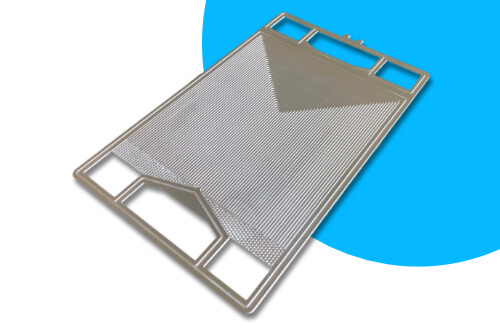Elcon provides high strength and durable photochemically etched plates that can withstand extreme environments in most applications. Photo etching offers fuel cell and electrolyzer plate engineers many advantages to address their design, delivery, and cost challenges. To optimize manufacturability, we can etch, CNC machine and laser cut plates.
There are several benefits to manufacturing fuel cell plates through photochemical etching compared to using other fabrication methods.
The photo etching process removes metal from both sides of the plates simultaneously, so complex channels of different designs can be etched at the same time. Unlike stamping, hydroforming or laser cutting, chemical etching imparts no mechanical or thermal stress on the plates, both of which can compromise stack bonding and fluid flow. Furthermore, digital pattern tooling, which is low-cost and quick to produce, can be adapted easily and inexpensively to optimize designs. There is no incremental cost with increased design complexity or features.
Capabilities & Benefits:
- Burr-free parts: great for stacking plates, and for minimizing friction on channel walls to improve fluid flow
- No heat or mechanical force is used: metallurgical properties preserved, and parts are stress-free
- Multiple channels and patterns can be etched simultaneously on both sides of a single plate
- Increased design flexibility and complexity with no incremental cost
- High dimensional repeatability
- Flat and uniform surface
- Volumes from rapid prototyping to high production
Comparison Chart:
Photochemical Etching |
Hydroforming/Stamping |
Laser |
CNC Machining |
|
Volume |
High | High | Low | Low |
Tolerances |
High | Low | High | High |
Tooling cost |
Low | High | Low | Low |
Stress |
No stress | Stress at edges | Thermal stress | No stress |
Burrs |
No burrs | Partial burrs | Micro burrs | No burrs |
Drawbacks |
Limited to thickness unless combined with CNC machining | Long lead times & high costs for producing stamping tool | Can only deal with one part/feature at a time, slag on edges | Inefficient with very thin materials |

